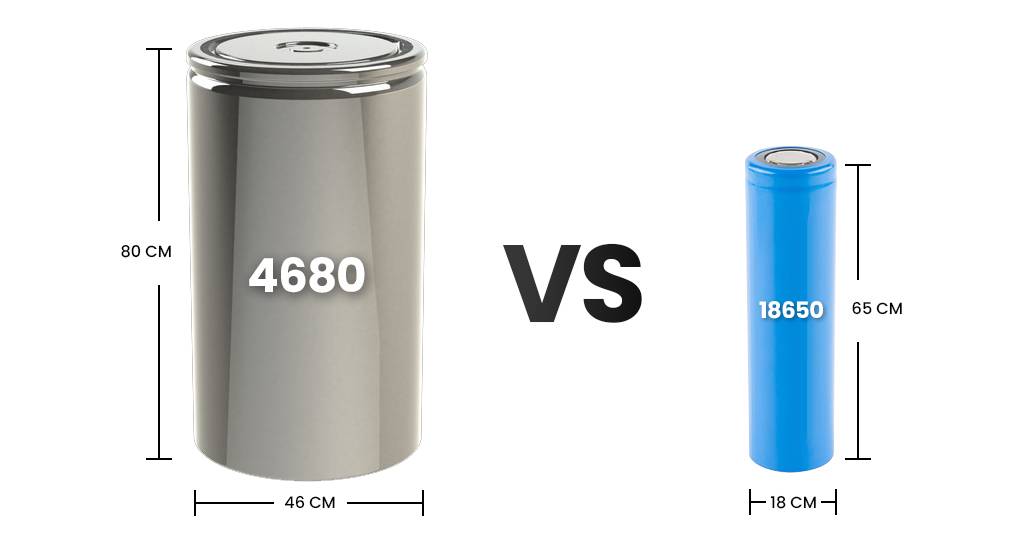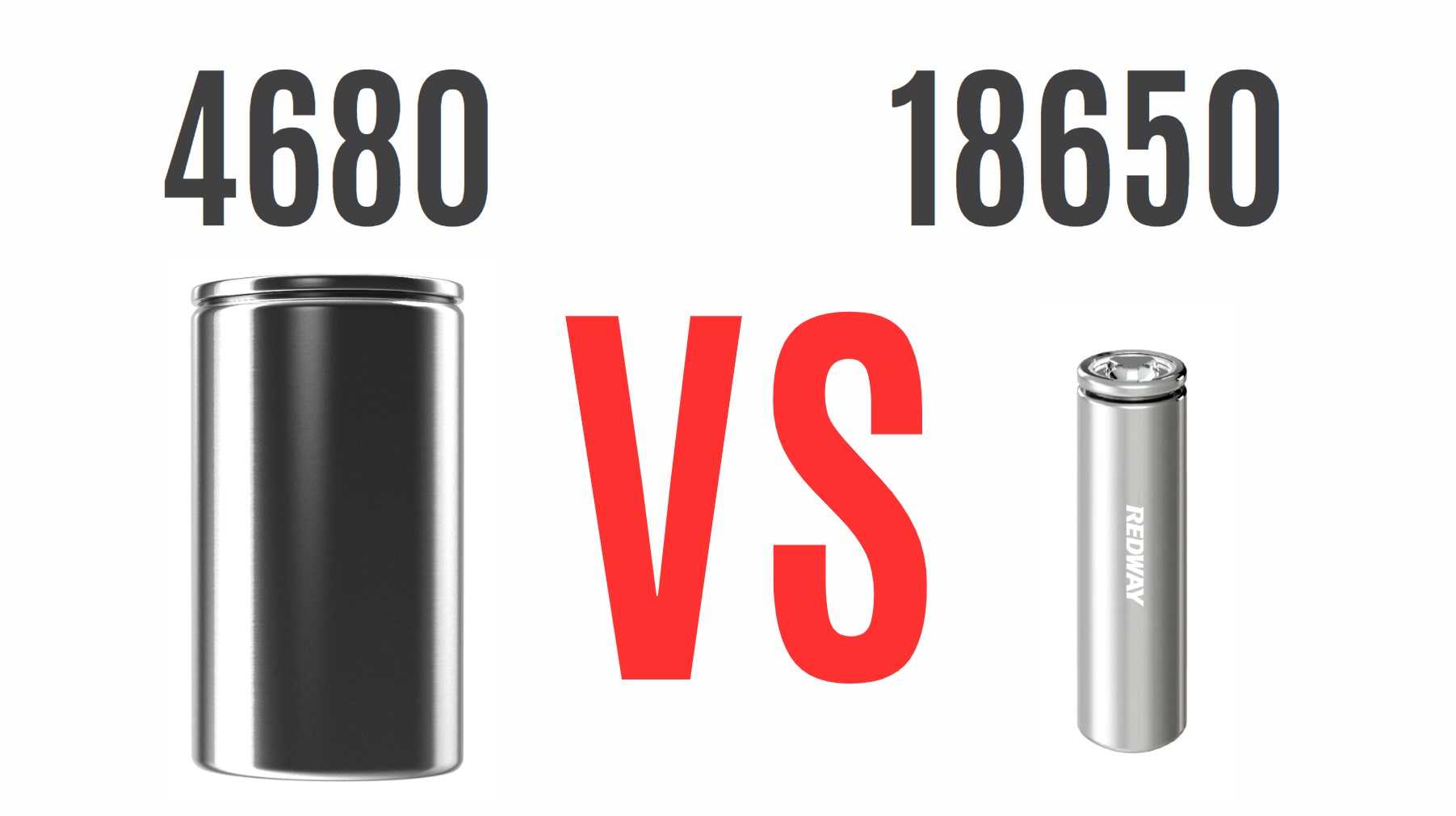Welcome to our comprehensive guide on the 4680 and 18650 batteries. In this article, we delve into the technical specifications, performance metrics, cost implications, and applications of these two battery types. Our aim is to provide you with the information necessary to make an informed decision about which battery best suits your needs.
Understanding Battery Basics
What is a Battery?
A battery is an energy storage device that converts chemical energy into electrical energy through electrochemical reactions. It comprises one or more electrochemical cells, each containing a positive electrode (cathode), a negative electrode (anode), and an electrolyte that facilitates ion flow between the electrodes.
Comparing 4680 and 18650 Batteries
Technical Specifications
4680 Battery
- Dimensions: 46mm diameter, 80mm height
- Capacity: Approximately 5000mAh
- Voltage: 3.7V nominal
- Energy Density: High
- Cycle Life: 1000+ cycles
- Cost: Higher initial cost
18650 Battery
- Dimensions: 18mm diameter, 65mm height
- Capacity: 2600-3600mAh
- Voltage: 3.6-3.7V nominal
- Energy Density: Moderate
- Cycle Life: 500-1000 cycles
- Cost: Lower initial cost
Performance Metrics
Energy Capacity
The 4680 battery boasts a higher energy capacity due to its larger size and improved design, making it suitable for high-drain applications like electric vehicles (EVs) and energy storage systems. The 18650 battery, while smaller and with lower capacity, remains widely used in consumer electronics and portable devices.
Power Output
With its higher voltage and larger capacity, the 4680 battery can deliver more power over a longer period. This makes it ideal for applications requiring sustained high power output. The 18650 battery, though less powerful, is sufficient for many standard devices like laptops and power tools.
Cost-Effectiveness
While the 4680 battery offers superior performance, it comes at a higher cost. The 18650 battery, being more established and produced in larger quantities, is generally more affordable and readily available.
Applications
4680 Battery
- Electric Vehicles: High capacity and energy density make it ideal for long-range EVs.
- Energy Storage Systems: Suitable for home and industrial energy storage due to its long cycle life.
- High-Drain Devices: Excellent for applications requiring sustained power, such as drones and high-performance power tools.
18650 Battery
- Consumer Electronics: Common in laptops, cameras, and flashlights.
- Portable Power Banks: Often used in portable chargers due to their compact size.
- Moderate-Drain Devices: Suitable for devices with lower power demands.
Choosing the Right Battery for Your Needs
Factors to Consider
- Application Requirements: Determine the power and capacity needs of your device.
- Size Constraints: Ensure the battery fits within the physical dimensions of your application.
- Budget: Consider the cost implications, including initial purchase and long-term usage.
- Availability: Ensure the chosen battery type is readily available in your region.
Decision Matrix
| Criteria | 4680 Battery | 18650 Battery |
|---|---|---|
| Capacity | High (5000mAh) | Moderate (2600-3600mAh) |
| Voltage | 3.7V | 3.6-3.7V |
| Energy Density | High | Moderate |
| Cycle Life | 1000+ cycles | 500-1000 cycles |
| Cost | Higher | Lower |
| Applications | EVs, energy storage, high-drain | Consumer electronics, portable power |
Conclusion
In summary, the choice between the 4680 and 18650 battery depends on your specific application needs. The 4680 battery, with its higher capacity and energy density, is best suited for high-demand applications such as electric vehicles and energy storage systems. On the other hand, the 18650 battery remains a versatile and cost-effective option for consumer electronics and portable devices. Carefully consider your power requirements, budget, and the availability of the batteries before making a decision.
4680 vs 18650 battery explained
Related Posts
- Zapping the Voltage: A Simple Guide to Multimeter Testing for AAA Battery Voltage
- Will Voltage Affect Battery Performance?
- Will solid-state batteries replace lithium?
- Will Batteries Last Longer in the Freezer? Answers to Your Freezing Battery Myths!
- Will batteries last longer in the freezer?
- Will a 42V Charger Work on a 48V Battery? Understanding the Risks and Best Practices




